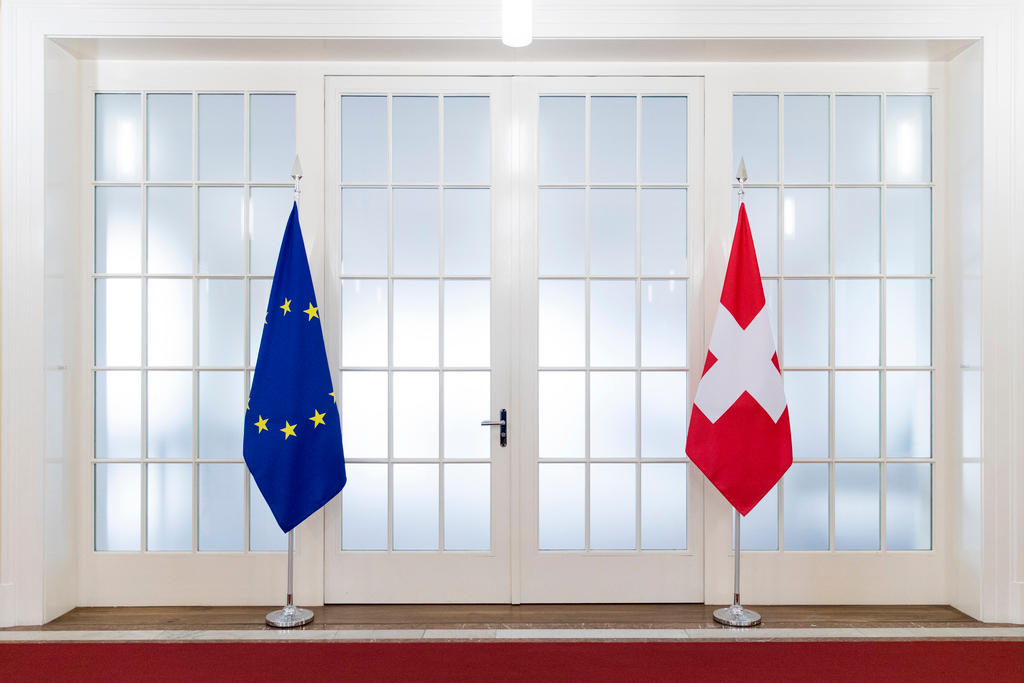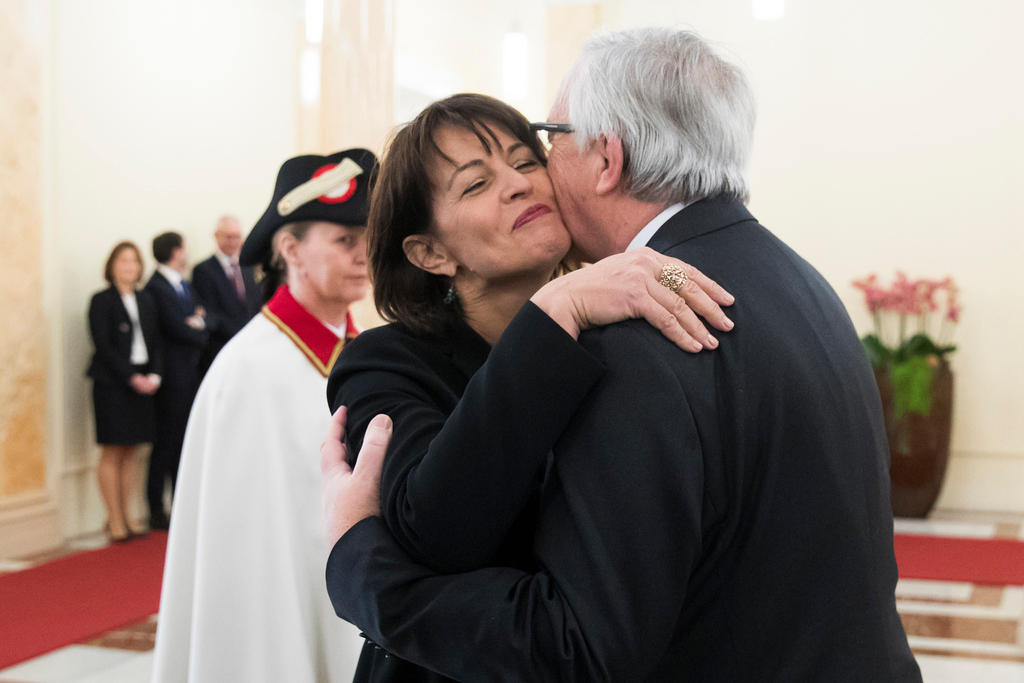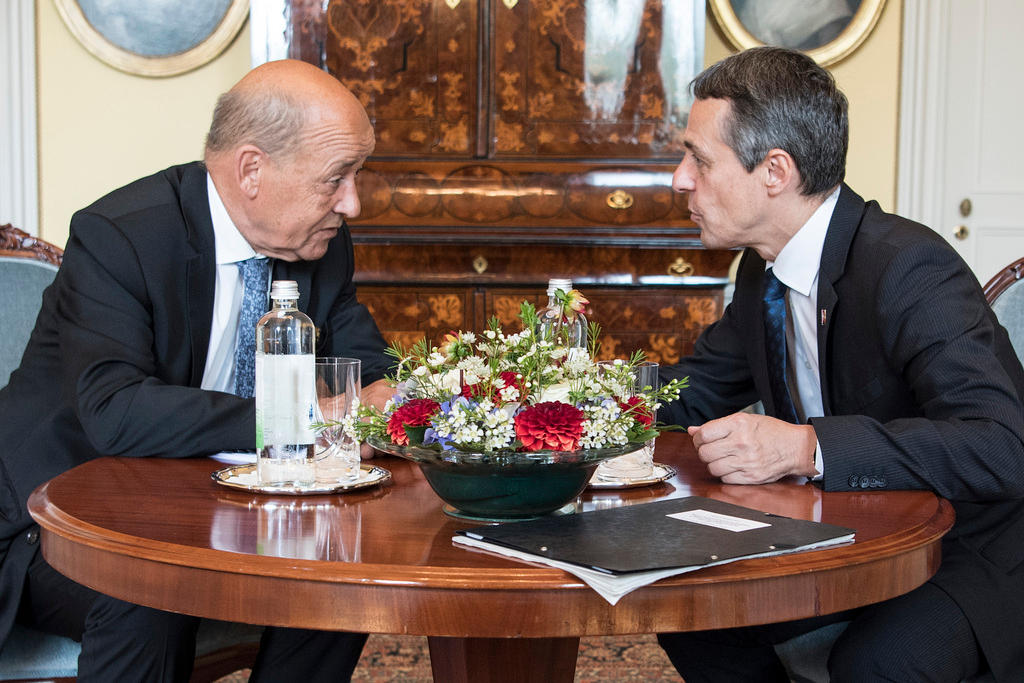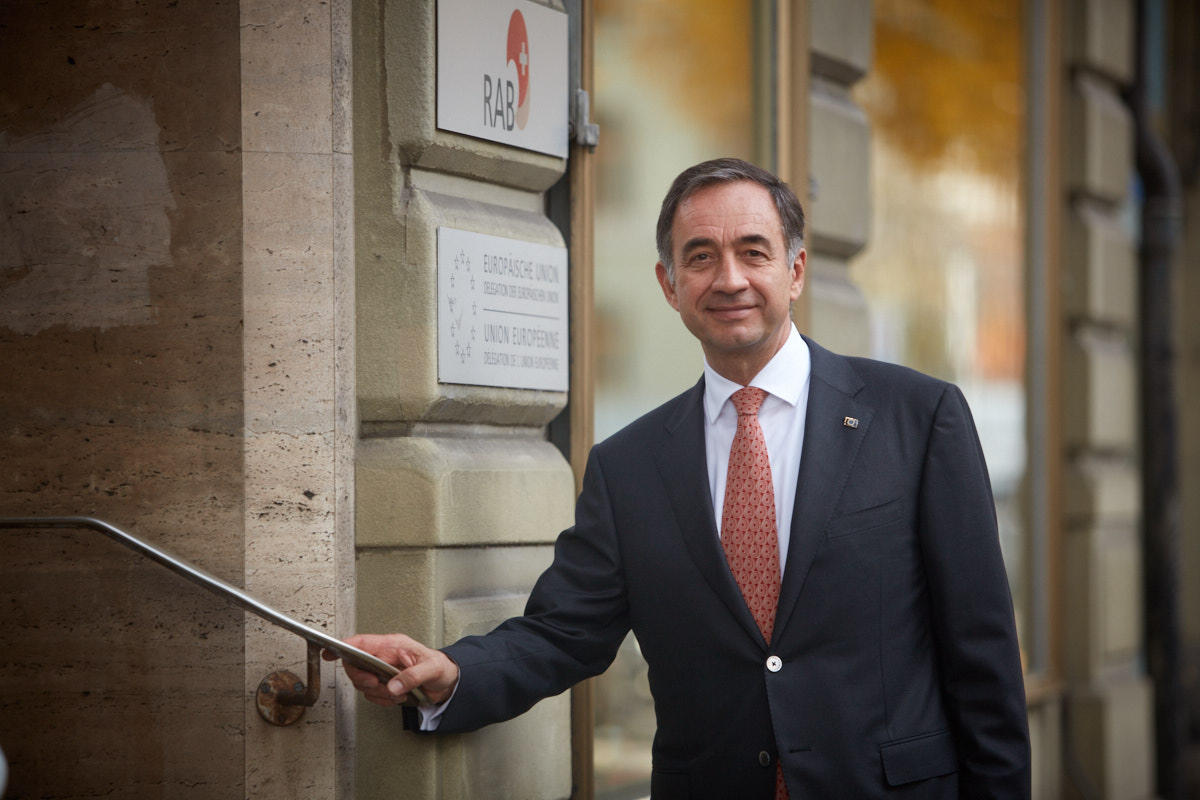‘50-50 chance’ of Swiss-EU framework deal before end of year

Swiss business lawyer Jean Russotto sees a ‘50-50 chance’ for Switzerland and the European Union to reach a deal in the coming months to formalise ties – currently stalled – which could then unlock sticking problems like the ‘equivalence’ of the Swiss and European stock exchanges.
“I know the negotiations. If we put the negotiators from both sides in a room for two days, the whole thing can be sorted out as we already have the projects. When we are under pressure – and we are – we do good things. But to do so, we need the will,” Russotto told swissinfo.ch.
The Swiss lawyerExternal link has been based in Brussels since 1972, closely following relations between non-member Switzerland and the EU and advising various parties.
Since 2014, talks have been taking place to formalise relations between the two sidesExternal link, now covered by around 100 separate accords. The so-called framework agreement being discussed covers five of the larger bilateral deals: free movement of persons, mutual recognition on conformity assessment, agricultural products, air transport and land transport. Measures related to the free movement of persons are the main stumbling block.
+ Read more about Swiss-EU relations
Brussels has said Switzerland must agree a full treaty before it gets greater access to EU markets and is pushing Bern to agree a treaty this year amid ongoing Brexit talks and before elections in Switzerland and the EU scheduled for 2019. The Swiss government must decide in the next few weeks its position on the negotiations which are currently on hold.
According to Russotto, there are ten points to be resolved.

Stumbling blocks
He said current stumbling blocks include whether Switzerland can implement the EU Posted Workers DirectiveExternal link, state aid questions, the EU’s use of a “guillotine clause” to link bilateral accords, what to do with the 1972 Free Trade Agreement for industrial productsExternal link – the original agreement between Switzerland and the EU, and the arbitration court to oversee disputes between the two sides.
“Can these points be resolved? Of course, but they depend on EU and Bern making concessions,” said Russotto, who gives both sides a “50% chance of success”.
There are two possible “successful” scenarios on the horizon, he said.
“We could have an accord on the main points, and discussions then continuing. This could be finished in a second or third session in a closed room where we complete the texts,” said the lawyer. “It could be a political accord, where we have defined everything but there are still details and we sign and submit it to the European Parliament as quickly as possible and probably finish it by the end of 2018 or first month of 2019 with something structured.”
Plan B to salvage something from the current talks would be a kind of memorandum of understanding (MOU) or joint declaration, he said.
“We can leave the room with our heads high. That’s probably the way of saving the stock market equivalence issue,” said Russotto.
Stock market dispute
A row between Switzerland and Brussels over the ‘equivalence’ of the Swiss and European stock exchanges – an essential measure for Swiss financial trading – has threatened to overshadow ties. Last December, the European Commission gave Switzerland a conditional limit of one year for mutual recognition of stock market rules and linked any extension to progress on the institutional treaty talks. Finance Minister Ueli Maurer has said the very survival of the Swiss stock exchange would be in danger if the EU does not restore its “equivalence” at the end of the year.
“If there is no accord, if both sides leave the talks disappointed or angry with nothing on paper, I really don’t see how the European Commission and member states could renew the equivalence. There is no legal basis,” said Russotto, adding that this could lead to an escalation and counter measures.
Bern has already said that contingency measures to protect domestic stock exchanges and banks could be envisaged and said it might reconsider its pledge for a CHF1.3 billion ($1.32 billion) payment to the 28-nation bloc.
“But if we find a hybrid solution with a MOU that clearly notes what’s been done during the negotiations, that’s the last hope for Switzerland and the EU,” said Russotto.

More
Swiss-EU ‘psychodrama’ has papers rubbing their eyes

In compliance with the JTI standards
More: SWI swissinfo.ch certified by the Journalism Trust Initiative






You can find an overview of ongoing debates with our journalists here. Please join us!
If you want to start a conversation about a topic raised in this article or want to report factual errors, email us at english@swissinfo.ch.